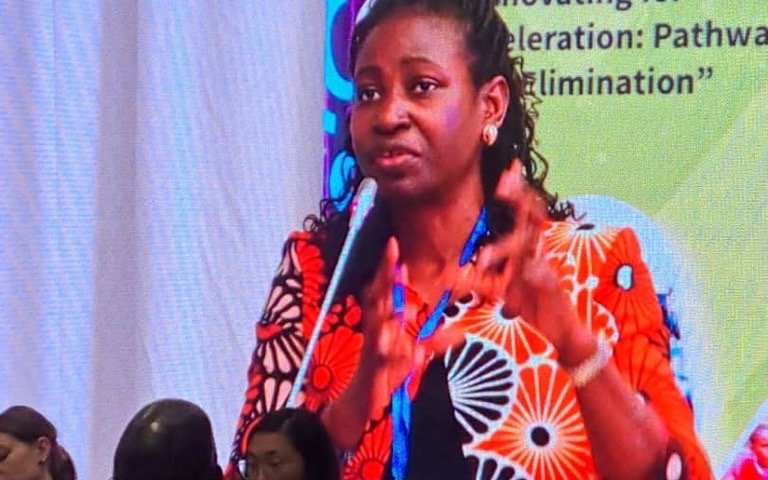May 2025 - Lomé, Togo
Last month, an assembly of over 45 national neglected tropical diseases (NTD) programme managers, health experts, and stakeholders convened in Lomé, Togo, to strategically address the control and elimination of NTDs across the African continent.
Speaking to the theme, "Innovating for Acceleration: Pathway to NTD Elimination," the meeting encouraged robust discussions and a strong commitment towards leveraging domestic resource mobilisation (DRM) and innovative strategies to overcome the persistent challenges hindering NTD elimination.
The need for sustainable financing took centre stage against the backdrop of a shifting global health funding landscape. Notably, the recent USAID funding cuts and aggregate cuts in ODA were the priority topics of the meeting, creating the opportunity for stakeholders to review the challenges and explore possible solutions. Programme managers shared insights and updates from their countries, highlighting progress and challenges, and especially sustainable financing. The takeaway here was clear: relying solely on traditional donor funding is no longer a viable path.
However, amidst these challenges, inspiring examples of proactive adaptation emerged. Countries like Ethiopia, Uganda and Tanzania showcased excellent practical examples for other countries to adopt. For example, Ethiopia put forward training, manuals, social behaviour change comms, data collection tools, reporting, logistics, supervision and microplanning as opportunities for integration in existing programmes.
It was made clear that integrating NTD programmes and interventions within existing health structures and actively pursuing domestic funding avenues, are key strategies for optimising resources. As Tesfahun Biswah, the NTD Programme Manager for Ethiopia, aptly stated:
‘’Integration is not a choice, it is our responsibility.’’
Uniting to Combat NTDs played a pivotal role in this conversation, delivering a presentation on sustainable and innovative financing for NTDs. We emphasised the fundamental role of DRM in building resilient health systems and acting as a vital complement to external funding. Furthermore, Uniting championed the advantages of seamlessly integrating NTD interventions into broader health programmes and sectors, to maximise impact. To further empower nations, Uniting presented a range of innovative financing mechanisms, including regional financing, the World Bank’s IDA21 financing for developing countries, public-private partnerships, and debt swaps.
The resounding message from Lomé was one of proactive leadership and collaborative innovation. As the fight against NTDs navigates a dynamic funding environment, the commitment to domestic resource mobilisation, strategic integration, and strong partnerships offers a clear and determined pathway towards a future free from these debilitating diseases across the African continent.
Key takeaways:
- Domestic Resource Mobilisation: Sustainable funding starts with strong political commitment and increased domestic investment in NTDs.
- Strategic Integration: Integrating NTD efforts into broader health systems improves efficiency and impact providing a viable pathway to elimination.
- Innovation & Technology: leveraging AI and machine learning to improve processes and bridge gaps in research, surveillance, diagnostics, and data analytics has strong capability to transform NTDs implementation.
- Innovative Financing: Diversifying funding sources including private philanthropy, CSR, and co-implementation strategies is essential in today’s funding landscape.
- Community Engagement: Local ownership and participation remain central to achieving elimination and creating a lasting impact.
- Celebrate Success: Demonstrating the return on investment through impact stories is key to sustaining momentum and driving investment to NTDs.
